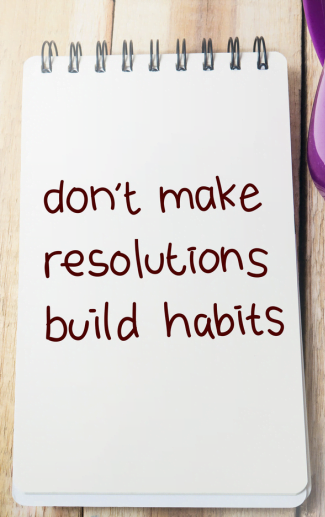Every time you repeat a habit, whether it’s a good habit or a bad one, it strengthens the neural trench network.
Imagine a pristine field of knee-high grass. If you walk across that field just once, it barely shows. Take the same route several times and there is now a path. Walk that path hundreds of times and you have a trail. Walk the trail thousands of times and you have a dirt road.
The more times you repeat an action, the faster your brain will guide you back to taking that
same action and the easier it is for you to take it.
But if you stop walking that path, the field will eventually heal itself. And if you stop doing bad habits, you will reprogram your brain to stop guiding you towards those bad habits.
How do you reprogram your brain?
1. Discipline
Studies show you have far more discipline in the morning than at any other time of day. That’s why, if at all possible, you should start a new habit first thing when you wake up, when discipline is the highest. For example, if you’re creating a course, work on it each morning for 30 minutes before you do anything else.
2. Focus
Instead of attacking your work haphazardly, focus on just one thing at a time.
For example, one video in your course, one chapter in your book, one page of your website and so forth. Don’t try to break every bad habit at once, or create every new, good habit at the same time. Focus your efforts and build on that.
3. Be Bold
Don’t strive for a little goal when a big one will make you more passionate. Do what they say cannot be done. What goal will get you out of bed at 6am with the enthusiasm of a child on Christmas morning?

4. Manipulate Your Environment
Clutter is not conducive to getting work done, nor are distractions. Create a space that is used only for your work.
5. Take Consistent, Daily Action.
Without exception, take action every single day for the next 6 weeks. Better still, take daily action for the next 52 weeks until the habits of starting, completing and shipping are so ingrained, it’s nearly impossible for you NOT to do these things.
6. Habit Stack
When the brain learns a new song, it will not simply link together the notes already in your memory. Instead, it will develop a region that encodes the entire song. In the same way, you can stack one new good habit on top of an existing good habit to develop an entirely new brain region dedicated to this habit stack.

For example, if you already get up early in the morning, stack a new habit on top of this such as writing for 30 minutes as soon as you wake up. 3 weeks later, stack the habit of taking a 5 minute break and then writing for another 30 minutes. Or add the habit of going for a run.
Each time you add a new habit to the stack, the entire stack is rewritten in your brain, making the entire stack of habits automatic and requiring virtually no discipline to accomplish each day.
Read our full March Newsletter here

